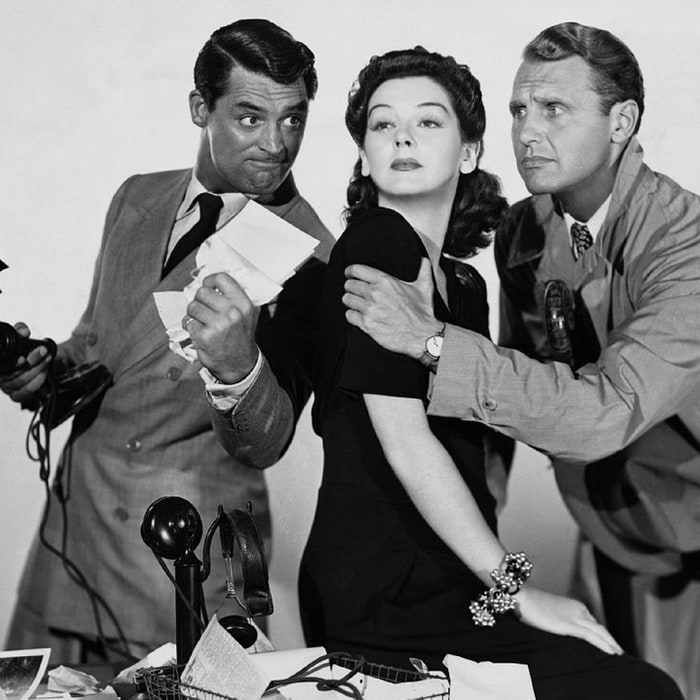If you’re interested in acting as a profession, the chances are that you have some idea of what an acting agent is. For those not in the know, contrary to what ‘agent’ may suggest to you, they’re not international people of mystery preferring their drinks shaken not stirred, neither are they necessarily colleagues of Mulder and Scully. An acting agent represents professional actors working on behalf of their clients as the middle person between the talent and their employers. Join us as we take you through the job profile of an acting agent.
1. Its who you know not what you know
We know, we know, sorry about this! We thought we’d get the cringe-inducing point out of the way at the start. In the acting profession knowledge and contacts are key and an acting agent can help you out on both accounts. An acting agent can introduce you to others in the business through their extensive contacts and experience. Whilst you make it your business to do the acting, an acting agent makes it their business to know the right people; together you’ve got the recipe for a career in acting.

2. What’s in it for them?
An acting agent earns – depending on the arrangement – approximately 10% commission on your earnings. This of course means that they’re only making money if you are, so its very much in their interest to keep you in work. The flip side of this is that securing an agent can be very competitive – you need to sell yourself to them before they sell you to potential employers. As they make no money up front, they need to be sure that there’ll be abundant work available to you.

3. The legal bits
An agent essentially acts as a middle person between yourself (‘the talent’) and potential employers. Its probably fair to say that most actors prefer to get stuck into a meaty role over getting lost in legal jargon; an acting agent will provide legal representation helping you to navigate employment contracts. Since they are relying on your income to secure their percentage, its in their best interest to help you out with the legal bits.

4. Agent vs Manager
An acting agent is very distinct from a manager. Broadly speaking, the difference between a manager and agent is that the acting agent can solicit employment and negotiate contracts on your behalf whilst a manager provides guidance. Agents are part of a talent agency whereas managers can be independent entities. It is probably fair to say that your relationship with a manager is a more personal one. Acting agents have numerous clients they’re busy trying to hunt down work for, so they’re not available at your every beck and call. Another important distinction between agent and manager is that an acting agent is employed by a talent agency with you as their client, whereas a manager is employed by you directly often receiving a more generous cut. That being said, the line between agent and manager is becoming increasingly blurred and agents are more frequently dealing with management as the use of managers becomes more commonplace.

5. A typical day
Acting agents spend much of their time arranging auditions and client bookings, negotiating fees, advising clients, dealing with work permits and travel arrangements and handling any fan mail or media requests on the client’s behalf. Arguably the most important part of being an acting agent is building relationships. Whilst it isn’t easy to divide relationship building into specific tasks, it is a common thread throughout everything an acting agent does. They may have had a hectic time in the office being on the receiving end of actors’ distress at not being cast for that coveted role, but the day often doesn’t finish there. Acting agents need to stay visible on the social scene, but its not all hanging around at celebrity hot spots; they need to get themselves invited to the events and parties attended by decision and taste makers in the entertainment industry like talent scouts, casting directors, writers, producers and journalists.

6. Anatomy of an acting agent
You now know what they do in a technical sense, but what kind of person is an acting agent? They have to juggle many relationships with people from varying backgrounds and job fields so they probably won’t get very far if they’re shy and retiring or socially awkward. They must be persuasive and tenacious with the ability to deal with high stress situations and difficult people. An acting agent must be meticulously organised to keep on top of their numerous clients’ interests and possess excellent attention to detail in matching clients to potential roles. They must also work quickly in trying to secure work for their client given how fast moving and competitive the entertainment industry is.

7. The process
An acting agent receives casting notices from casting teams. If they feel a particular role is right for their client and the client is interested they’ll send their resume or acting credits to the casting team together with a headshot and in some cases a showreel. If an audition is offered the acting agent will schedule it and provide their client with a specification sheet including information about the role, the audition venue and time along with the script. If the client wins the role the acting agent will also negotiate their contract.

8. Becoming an acting agent
We’ve discussed the day to day reality of being an acting agent, what is involved and what personal attributes a talent agent may have, but how do they get to the position of acting agent? Many people in the profession begin as interns so that they have a solid grasp of the role and can demonstrate commitment to the profession. Most acting agents are educated to degree level in a related subject and or have worked professionally in marketing, PR, corporate finance or communications.

9. Passion for the industry
It is vital to an acting agent’s success that they remain aware of what’s going on in the entertainment industry. This doesn’t just mean watching a bit of tele or catching a play here and there, but being fully tuned in to industry trends in casting, what’s being produced and where the opportunities are. As an acting agent it really isn’t sufficient to have a passing interest in the dramatic arts.

10. What they need from you
Whilst it is an acting agent’s job to track down potential work for the client, it shouldn’t be a one way street, but rather a strong relationship between talent and agent with constantly open lines of communication. In this article we have stressed the importance of an acting agent working in a timely manner, but this all comes apart if you don’t respond to your agent quickly enough. If they’re asking you to update your showreel or head shot it will be for a good reason; they’re trying to present you in the best light so get back to them with what they need to promote you to the best of their ability. For tips on auditions, you can read one of our most read articles on the topic here.

